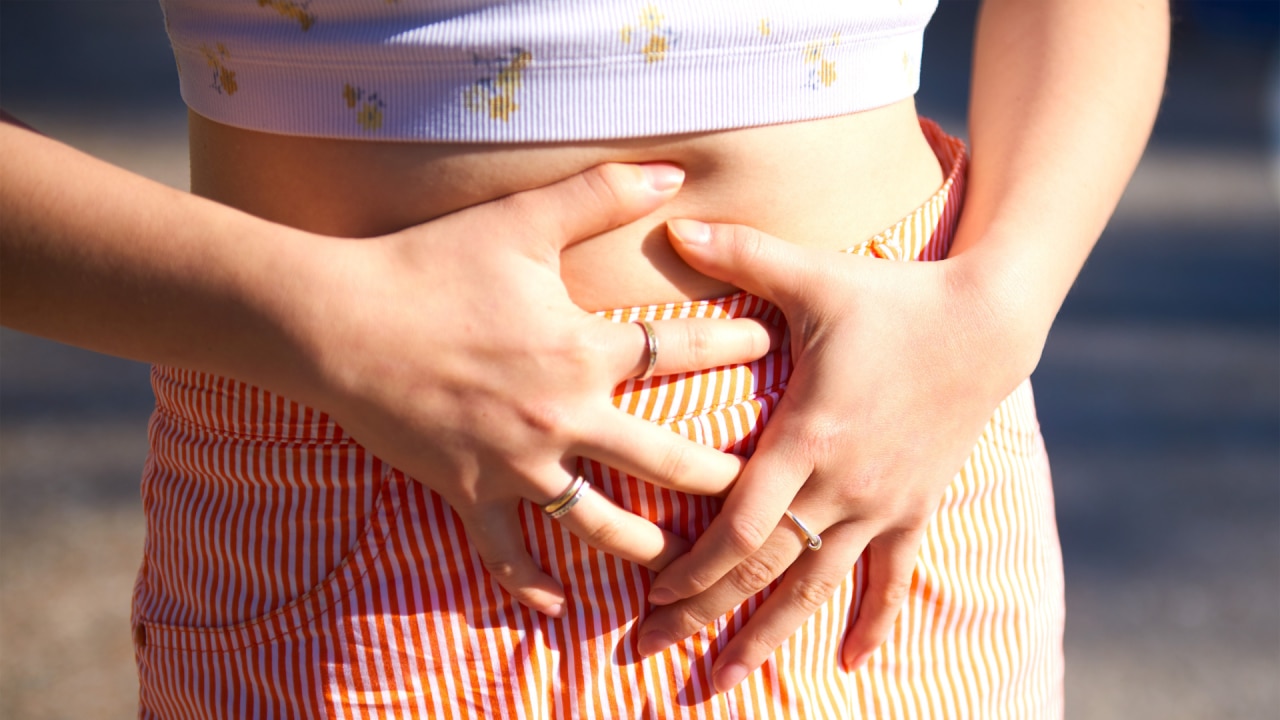
How to quickly and effectively scrap your period pain is not a question you’re likely to ask flippantly. While you’re curled around a hot water bottle in pain, an empty blister pack of Nurofen next to you, you’d do almost anything for relief. Here’s what a doctor recommends.
Periods look, and feel, different for everyone that has them. Some unlucky uterus owners endure a painful monthly reminder for days before they bleed, while others are fortunate enough to have only experienced stomach cramps after an intense ab workout.
Period pain is difficult to pin down in one single description. It can be all-consuming, sporadic, or an unnoticeable flicker on the spectrum of PMS symptoms. It’s also a topic that’s highly misunderstood, even disputed, by the half of the world’s population who are fortunate to never truly experience it.
To unpack exactly how we can effectively address period pain, the host of Healthy-ish and Extra Healthy-ish, Felicity Harley, consults an expert.
Like what you see? Sign up to our bodyandsoul.com.au newsletter for more stories like this.
Dr Peta Wright is a Gynaecologist and author. Off the back of her new book, Healing Pelvic Pain, Dr Wright discusses the many layers that may be contributing to pelvic pain in girls and women, and shares some tips for how we can all cope a little better.
So, is period pain normal?
With studies showing 93 percent of girls and women who have periods experience discomfort or pain, the need for a deeper analysis of pain management and treatment is paramount to the collective well-being of Aussie women everywhere.
But to better understand how to treat and avoid period pain, Dr Wright says it’s important to really understand what period pain is, and what it can mean for our bodies.
“A period is obviously a completely normal physiological thing that happens in the body of someone who has a uterus and ovaries,” says Dr Wright. “But there are lots of things in our bodies that can make it worse for some women.”
The gynaecologist says factors that can contribute to higher discomfort levels during a period are things such as having a higher load of inflammation in our bodies, a nervous system that is on high alert, increased stress or fear, and even gut issues.
“There are lots of things that overlay on top of the normal inflammatory response that can turn the dial either up or down on that period pain,” she says. “It’s not a dangerous event, but if you’re experiencing more than moderate pain, there’s something else going on in the rest of your body that may need attention.”
Popping painkillers isn’t the only answer
Even though some bouts of period pain can leave us wanting to crawl under the covers and into hibernation, the gynaecologist says a sedimentary routine can actually make things worse, encouraging us to keep on moving throughout the day.
“Don’t be bed-bound because that really tightens everything up,” Dr Wright explains, recommending slow movements like walks gentle yoga and stretches during this time.
“Anti-inflammatory supplements like ginger can be really good,” adds Dr Wright, as well as fish oil, magnesium and zinc supplements.
The women’s health expert’s other period self-care tips include carving out some time to take things slower when we experience discomfort and reminding ourselves that we’re experiencing a normal, and temporary, part of life.
Preventing and relieving pain through our lifestyle
While the importance of a healthy diet for our health goes without saying, the women’s health expert reiterates the role our eating habits and choices can play in our menstrual experience.
“What we’re eating can affect our gut microbiome,” says Dr Wright. “We want a really diverse gut biome because it helps us metabolise hormones, healthy digestion, and helps lower inflammation.”
The gynaecologist says certain studies have shown women who experience improvements in their gut microbiome have consequently noticed a decrease in the prevalence of period pain. She says a Mediterranean, anti-inflammatory diet has been linked to significant improvements. The expert attributes the diet’s pillars, such as healthy fats, high fibre, and a low concentration of processed foods to a slew of health benefits.
So instead of bingeing a tub of ice cream every time you have a period, perhaps opt for a fresh Mediterranean spread instead.
Want to hear more helpful insights from Dr Wright? Listen to the whole chat here.